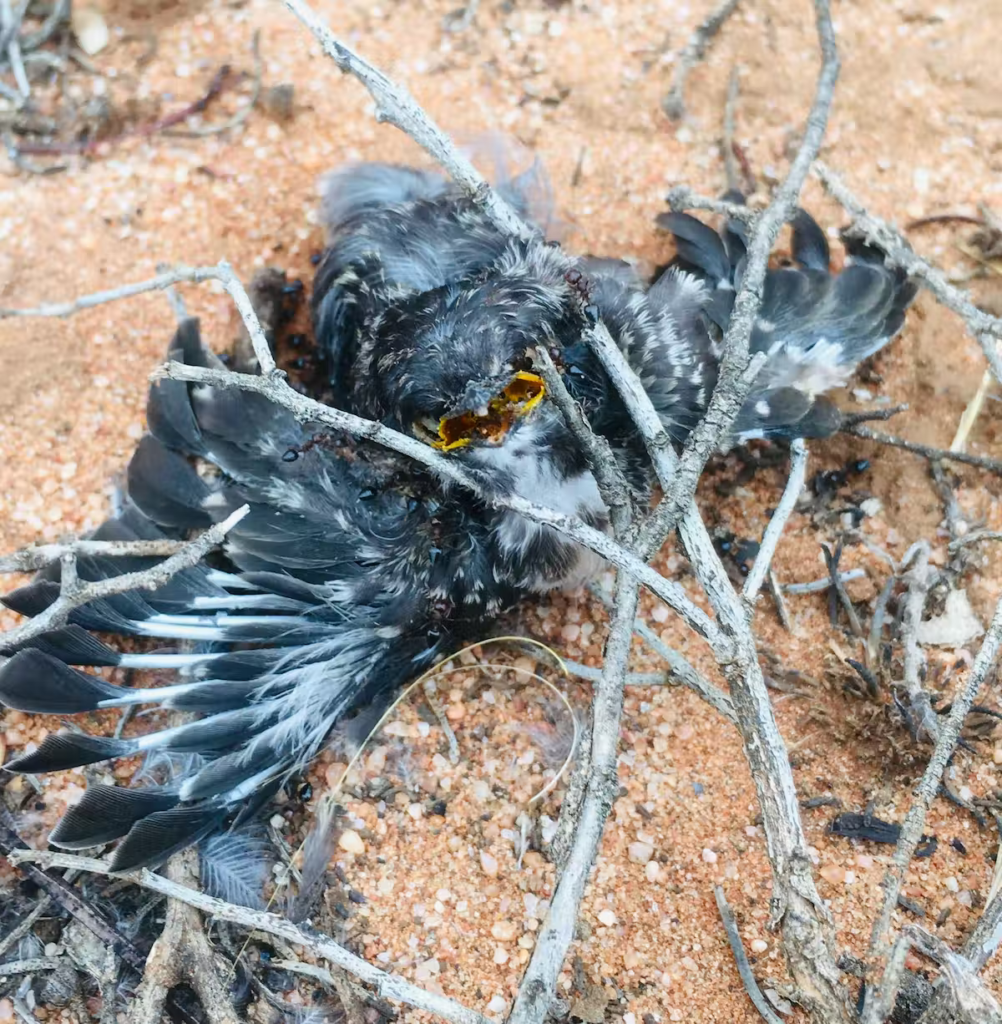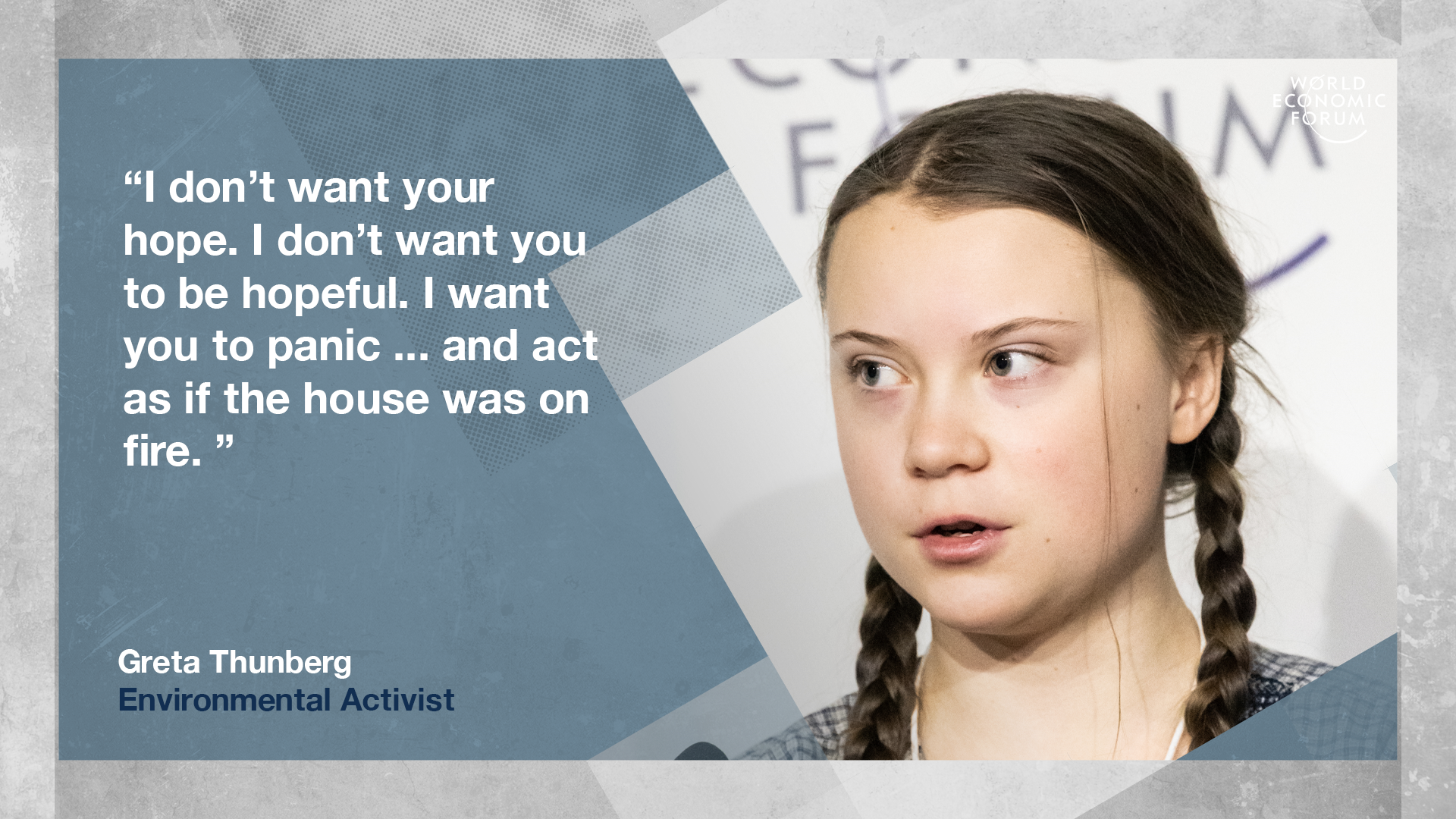Small birds underline reality of climate crisis

The rate our green(ish) planet is warming is still rising due to humanity’s carbon emissions. Many species are dying to pay the price.
Nothing humans have done so far seems to have slowed the rate of increase, let alone stopping and reversing the rise. Most animal and plant species, including humans. have genetically determined thermal maximums, i.e., environmental temperature limits above which they cannot survive. The featured article here describes field studies that show what happens when these lethal limits are reached in the environments of some reasonably well known Australian birds.
Without stretching the metaphor, these birds are ‘canaries in the mine’ together with all kinds of other species dying out to warn us that we, too, are at risk of extinction if we fail to stop the process that is progressively warming our globe.

by Janet Gardiner & Suzanne Prober, 29/9/2022 in The Conversation
Heatwaves linked to climate change have already led to mass deaths of birds and other wildlife around the world. To stem the loss of biodiversity as the climate warms, we need to better understand how birds respond.
Our new study set out to fill this knowledge gap by examining Australian birds. Alarmingly, we found birds at our study sites died at a rate three times greater during a very hot summer compared to a mild summer.
And the news gets worse. Under a pessimistic emissions scenario, just 11% of birds at the sites would survive.
The findings have profound implications for our bird life in a warming world – and underscore the urgent need to both reduce greenhouse gas emissions, and help animals find cool places to shelter.
Read the complete article….
Continued emissions of greenhouse gases (GHGs) from the production and burning of fossil fuel is driving all complex life on Earth (including humans) towards extinction
Climate Sentinel News has published several articles that explain how rising temperatures driven by anthropogenic fossil fuel emissions are triggering further GHG emissions from warming soil, melting permafrost, burning forests and tundra and a variety of other sources. These emissions are making the weather more extreme. But, also, the additional heating from these sources drives global temperatures still higher through positive feedbacks. This will result in what is called ‘runaway warming’. The nature of positive feedback is that it accelerates the rate of change until the driving force is exhausted (i.e., the fuel runs out) or stopped by stronger external forces; or the system itself self-destructs.
Even if we stop all human GHG emissions immediately, it is probably too late to stop the positive feedback processes driving us towards near-term extinction. … However, removing the human contribution will give us more time to work out how to remove GHGs from the atmosphere faster than they are being added by the feedback process — thus providing the external force needed to stop the runaway process. However, if we don’t mobilize effective action very soon, the accelerating feedbacks will likely exceed anything humans can do to stop them.
THIS IS AN EXISTENTIAL CLIMATE EMERGENCY, REQUIRING EMERGENCY MOBILIZATION FOR ACTION TO STOP EMISSIONS AND RECAPTURE A RESPECTABLE FRACTION OF PAST EMISSIONS.
It is clear that our present governments are reluctant or are even refusing to take effective action to stop fossil fuel emissions. Even Labor governments at state and federal levels are committed to supporting new fossil fuel production projects, to say nothing of protecting the ‘rights’ of existing projects to continue their emissions.
We need to turn away from the the Apocalypse on the road to hothouse hell, and we won’t do this by continuing with business as usual!
It seems to have taken the clear thinking of Greta Thunberg, a 16 year-old girl who concluded school was pointless as long as humans continued their blind ‘business as usual’ rush towards extinction.

In other words, wake up! smell the smoke! see the grimly frightful reality, and fight the fire that is burning up our only planet so we can give our offspring a hopeful future. This is the only issue that matters. Even the IPCC’s hyperconservative Sixth Assessment Report that looks at climate change’s global and regional impacts on ecosystems, biodiversity, and human communities makes it clear we are headed for an existential climate catastrophe if we don’t stop the warming process.
In Greta’s words, “even a small child can understand [this]”. People hope for their children’s futures. She doesn’t want your hopium. She wants you to rationally panic enough to wake up, pay attention to reality, and fight the fire…. so our offspring can have some hope for their future.
Victorian Labor with a majority in Parliament is still supporting the petrochemical industry and gas guzzling private transport; and a Liberal Government in power would be even worse! What we need is to have a minority government where climate friendly greens and independents have the balance of power to ensure that effective climate action is prioritized and mobilized.
How can we ensure this to respond effectively to the climate crisis?
Individual actions can help a bit, but real solutions demand concerted actions at all government levels (global, national, state, and local).
The UN through the Intergovernmental Panel on Climate Change (IPCC) and COP process is trying to provide the science basis and coordination. But is hampered by major nations such as the USA, China, Russia, and Brazil.
With the April Federal Election, Australia has made significant progress towards taking the climate seriously as enabled by the Teals and Greens decimation of the science denying Liberal Government to put Labor in power. But labor still supports continuing (and even expanding) fossil fuel production.
In Australia, the states actually have the most direct power over industry and environmental protection, but most are still working to protect the fossil fuel industries from from being harmed by environmental regulations, etc. as might be required to stop GHG emissions.
Even local governments can play a role in climate and environmental protection through zoning and development controls, but generally they work for the developers rather than citizens.
As shown Federally, voters can make major changes in governmental composition and behavior.
Victorians go to the polls on 26 November. All seats will be up for election/re-election. Voters have the possibility to completely change the government if they so desire. If you are a Victorian concerned about our future in a warming environment, assuming anyone is running on this issue, you can use your vote to help elect a candidate in your electorate who will work for action on the climate emergency. However, where the parties can heavily fund their candidates, and several independents and minor party candidates trying to be all things for all people, it is very hard to know how you should vote to have the maximum chance of electing a climate ‘friendly’ candidate.
Vote Climate One will help you make your choices for the upper and lower houses with our Traffic Light Voting Guides under preparation for the Victorian election (see our Climate Lens Traffic Light Assessment page for a foretaste). Voting for the Legislative Council is important, and we advise you to vote below the line to maximize your chances to elect a climate friend, but as Anthony Green explains, Victoria’s Group Voting Ticket makes it very difficult to ensure that some ‘preference harvesting’ deal doesn’t apply your vote to someone you wouldn’t want to elect on a bet. Our voting guides for the Legislative Council contests will be designed to make voting below the line as safe and easy to use as possible based on our analyses of each candidate’s climate credentials.
Featured image: A Jacky Winter at the study site showing signs of dehydration on the morning following a 47℃ day. Author provided (from the article)